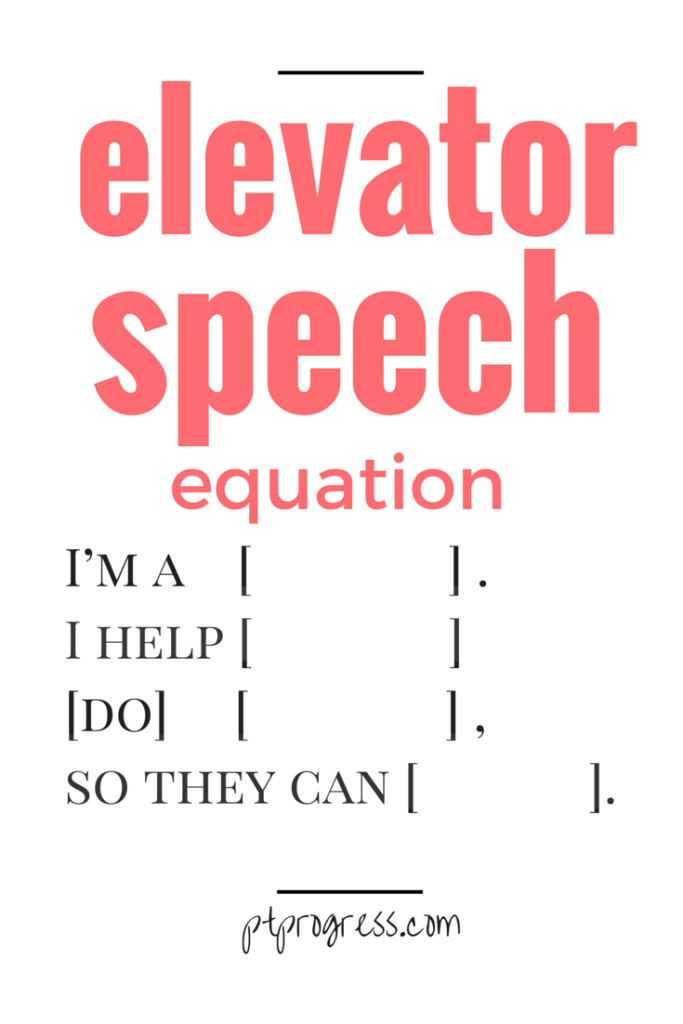You’re at a conference, minding your own business and someone looks your way and says ‘how’s it going?’
How dare they. 
You know exactly where this is going. You reply with a casual ‘great, how are you doing?’
There’s a good chance you’re feeling one of three things right now:
- You’re thinking: I hate networking. I hate networking. I hate networking.
- If I look away quick enough, we won’t have to endure this awkward exchange of pleasantries.
- Even if I did care to talk, I really don’t know what to say to you…
So what do you do? Let’s assume you want to dive head first and play the introduction game. That’s where your elevator speech comes into play.
The Elevator Speech Intro Equation
We’ve all heard the advice of having a good elevator speech. But how do you craft an introduction that gives you the best opportunity to lead into to a conversation?
Here’s a simple equation to help you with your elevator speech intro that answers the question “So, what do you do?”
Basic Equation for 5 Second Pitch
I’m a _____. I help ________ [do] __________, so that they can _______.
I like this approach because it lets YOU define what your role is to the person asking. If you simply say, “I’m a _____” then you leave it up to the other person to interpret what you do.
Make sense? Here’s an elevator speech example
– “So what do you do?”
— “I’m a physical therapist”
– “Cool, so do you do a lot of massage therapy and stuff?”
— “Nope” (Now you’re offended and will spend the next 3 minutes trying to explain why you’re not a massage therapist)
Here’s the Basic Equation in play:
– “So what do you do?”
— “I’m a physical therapist. I help people by optimizing their movement, so they can live without pain.
If you’re talking to someone who doesn’t have any idea what it is that you do, it’s probably good to keep it broad like the statement above.
But let’s say you’re in a room of other physical therapists who already know what physical therapists do. You can use the same equation and make it more specific:
– “So what do you do?”
— “ I’m a physical therapist. I help runners identify movement faults, so they can run without pain.
A specific answer like this can direct the rest of the conversation so that it’s more meaningful.
Meaningful conversations lead to better connections.
So there you have it, a quick way to formulate an elevator pitch introduction that doesn’t leave a bad taste in your mouth.
Here’s the equation again:
I’m a _____. I help ________ [do] __________, so that they can _______.
Take a few minutes and think up your elevator pitch intro. It might just save you from that next awkward introduction.

Thank you for making this so basic. I was really over thinking it.
Great examples